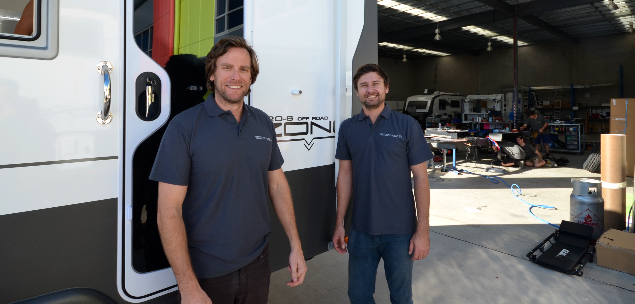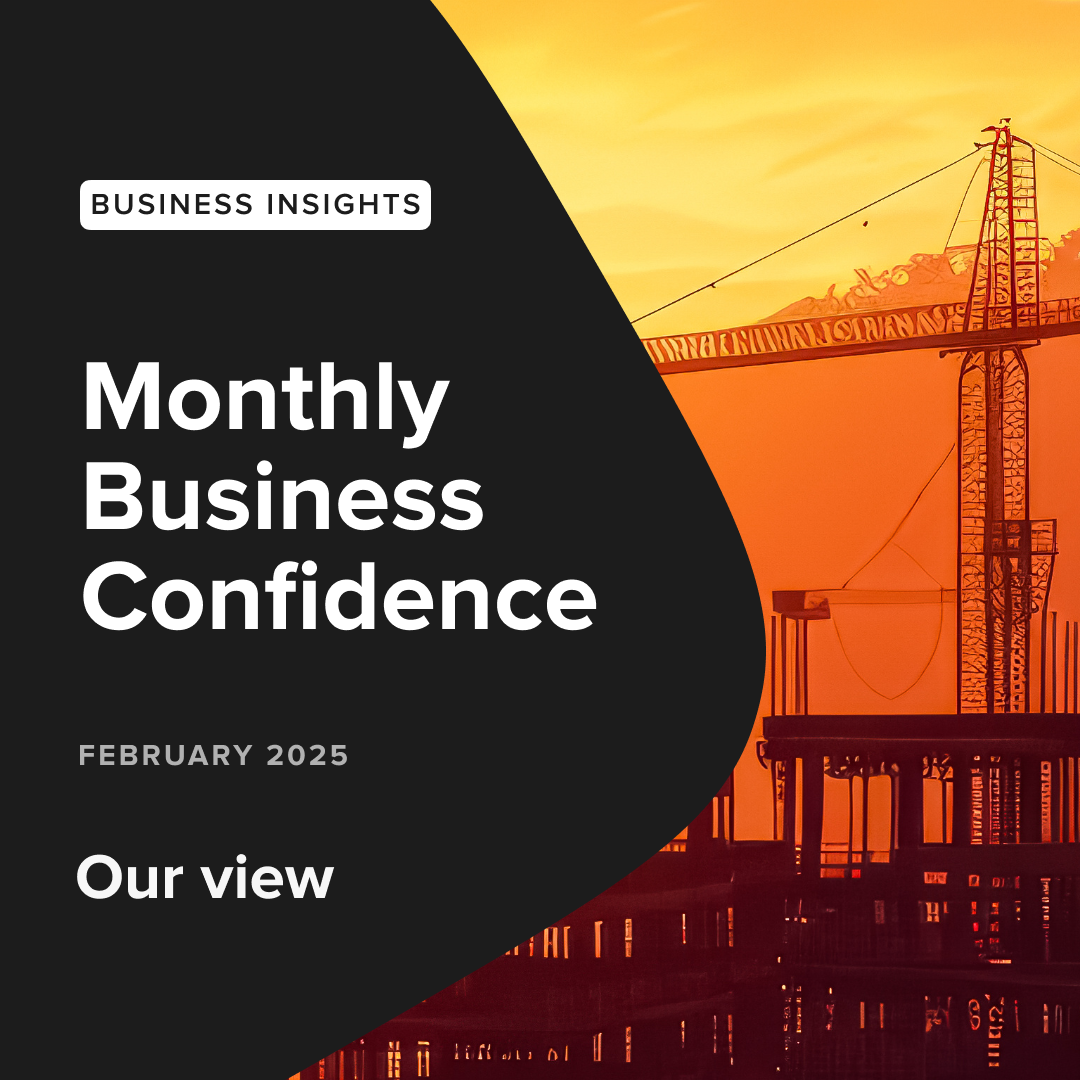If he wasn’t already busy enough heading up three manufacturing start-ups, Queensland’s Dave Biggars has set his sights on leading the $19 billion-dollar caravan industry out of the bygone era of timber into the era of smart design.
Last year, the 32-year-old entrepreneur founded Zone RV, a manufacturer of built-to-order off-road and luxury touring caravans. Nominated for Caravan World’s ‘Best Aussie Caravan 2016’, the company employs processes and materials found in the marine, transport, aircraft and civil composite industries to, Biggars explained, provide end users with a lighter, stronger, smarter and safer caravan.
He is also the founder and director of Cure Composites and CL Composites. In addition to manufacturing sandwich panels for the marine and aviation industries, Cure Composites supplies ZONE RV and other caravan manufacturers (such as Winnebago) with high-strength floor panels. Meanwhile, CL Composites supplies wall and roof panels to ZONE RV along with other caravan manufacturers as well as truck body builders – and the business is starting to break into housing panel systems.
He spoke to Dynamic Business about disrupting the caravan industry and the reality of operating multiple businesses simultaneously.
What distinguishes ZONE RV from other caravans?
Although it’s estimated to be worth $19 billion*, the caravan industry is still considered both a cottage industry and a traditional trade. It’s ripe for disruption due to the continued use of conventional methods and a reliance on materials such as timber – which the aeronautical and marine industries moved away from in the 1960s. Manufacturers have been fairly comfortable with the prevailing building processes and materials despite the emergence of advanced technology and manufacturing standards over the past few decades.
Our USP is vans that are 100% timber-less. Our use of modern processes and composite materials (generally, a mix of aluminium, fiberglass, foam and plastics) has resulted in a far less problematic product. A timber caravan, for instance, has imperfections that lead to failure, including weak spots and rotting. Even if a timber caravan has sealed cladding, natural condensation can still get inside the walls and cause the timber to rot in humid or very cold climates.
Our caravans are informed by the materials, processes and experience I gained building high-performance catamarans. In fact, it’s been said that our caravans hold more in common with luxury yachts, than a conventionally-built caravans. Underpinning all our R&D efforts has been a commitment to make a lighter, stronger, smarter and safer product. The modern materials applied in the marine and aeronautical industries won’t rot or corrode over time.
Consumers today are increasingly savvy, due to the online resources readily available to them, and I truly believe the industry-wide shift has started, with ZONE RV leading the charge. Manufacturers that don’t adapt, i.e. don’t shift forward to composite technology, will unfortunately get left behind, as caravan buyer increasingly demand a lighter and stronger van. My other businesses supply panels to the caravan industry because I believe it’s for the greater good of the industry to shift away from timber and aluminium frames. Having said that, the panels supplied to ZONE RV are exclusive to our caravans. We want to be the best and most innovative product in the market and I truly believe, right now, we are.
How has the business nurtured a customer base?
With Zone RV, we made the conscious decision not to distribute to dealers as we wanted full control of the customer experience. We deal directly from our factory where customers can partake in factory tours and see first-hand the quality of our product, including attention to detail and the technology employed, as well the innovative approach to manufacturing them.

Our marketing is heavily digitally-driven, which allows us to be far more targeted and cost-efficient. Our customers live nationally, so we’re able to reach them with YouTube videos, Google Search ads, social media campaigns, eDMs and online magazines. We do also see value in some traditional marketing methods such as the caravan trade shows and print magazines. Good PR has played a pivotal role in our marketing as well, because we have such an interesting and unique story to tell, as well as the caravan media often being able to deliver great editorial reviews because of our high performing product. Lastly and most importantly, word-of-mouth!!
What growth has the business seen since launch?
We’ve really ramped things up in the last six months at ZONE RV. Our average monthly revenue has increased by 133% from 3Q16 to 1Q17 and our workforce doubled in the same period. We initially set out to have 50 employees by Christmas, but we’ve already hit that target. To accommodate this rapid growth, we’re in the process of moving into a new factory with double the factory floor space. We produce one caravan per week, but we’ll be at two per week early 2017.
I’m fully responsible for the R&D of the ZONE RV product, so I’m always looking for new innovations. There’s no shortage of technology and innovation for building stronger and lighter caravans, so I spend my time constantly improving the material design, overall manufacturing processes and systems at the ZONE RV factory. There’s a number of new innovations up our sleeves, set to roll out over the next 12 months, which will keep us at the forefront of the industry.
What have been the main challenges along the way?
Initially, it was finding the right people. I’m fortunate to now have a team of switched-on managers who deal with the day-to-day business, thus allowing me to focus on my strengths – namely, manufacturing, design and construction processes. Our CFO Carl Bird came to us from a senior management role at ANZ where he gained extensive finance, business and people management skills over 10 years. We also have Neil Kinsley who was Toyota Australia’s Production Manager, who helps us optimise manufacturing efficiencies on the factory floor. Critically, many of our factory workers are ex-boat builders who are passionate about streamlined manufacturing.
Another key challenge has been cashflow. Our product has a high material percentage (65% of expenses for a caravan is materials and roughly 20% labour) and many of these materials are coming from overseas (Europe and Asia), meaning large sums of money are required upfront to import. To maintain a healthy cashflow, we’ve implemented a capital investment and the cashflow customer payment plan, where the build materials are aligned with the timing of scheduled payments.
A challenge for me personally has been operating three businesses simultaneously. I established Cure Composites seven years ago, CL Composites three years ago and Zone RV last year, so I’ve been operating all three for about two years. Having several factories spread up and down the east coast of Australia means I have to be in different states at different times of the week. I spend one week in Melbourne at CL Composites and then one week on the Sunshine Coast, which I consider my true home, splitting my time between ZONE RV and Cure Composites. It’s rare that everything is going right at the same time at each of the factories, so time management is something I’m always working on – it could always be sharper. Balancing social and personal life with work is a juggling act as I usually work 6-7 day weeks, I’m always on my phone and fly interstate every week.
What inspired you to launch multiple manufacturing start-ups?
I’m on a completely different career path now, compared to where I started. I initially studied at the Australian Maritime College in Tasmania and worked in the Merchant Navy on oil tankers as a navigator, with the intention of becoming a captain. However, the Merchant Navy didn’t afford me the creativity I was hungry for. Manufacturing fit the bill.
Growing up, I enjoyed working on projects with my father, who built aeroplanes and cars at home – my passion for manufacturing, which I pursued with all three of my manufacturing start-ups, was born out of this. I also share my father’s entrepreneurial drive and, being a sailing enthusiast most of my life, I’ve always admired high-performance, lightweight transportation.
I began producing bespoke yachts ten years ago but later shifted way from this niche market after recognising an opportunity to enter a high volume industry: caravan manufacturing. Standardised production is far more suitable for the Australian manufacturing industry. With the right ideas, systems, equipment and people, home-grown start-up manufacturers can be just as competitive as businesses operating elsewhere in the world.
* Caravan Industry Association of Australia’s 2016 ‘State of Industry Report’



